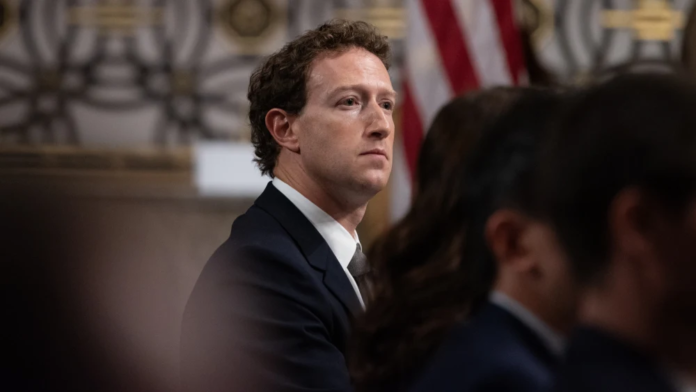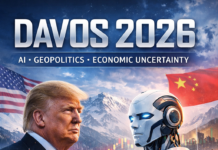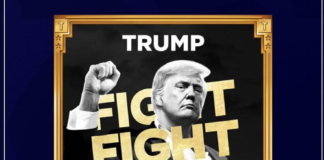
|
Getting your Trinity Audio player ready...
|
The Meta CEO said on a podcast that administration officials had asked the company to remove certain posts, including “things that are true.”
By Daniel Alison | January 10, 2025
In a candid discussion on The Joe Rogan Experience podcast, Meta CEO Mark Zuckerberg detailed instances where Biden administration officials allegedly pressured Facebook to remove certain content, often resorting to aggressive tactics. Zuckerberg’s remarks shed light on the fraught relationship between social media platforms and government officials over content moderation.
“People from the Biden administration would call up our team, scream at them, and curse,” Zuckerberg told Rogan. “It reached a point where we had to push back, saying, ‘We’re not going to take down things that are true. That’s ridiculous.’”
The White House did not respond to NBC News’ request for comment on Zuckerberg’s allegations.
Pressure to Remove COVID-19 Content
Zuckerberg’s comments align with previous claims he made about the administration’s efforts to influence Facebook’s content moderation policies. In a 2024 letter to Rep. Jim Jordan, chair of the House Judiciary Committee, Zuckerberg alleged that the White House repeatedly pressured Facebook to remove “certain COVID-19 content, including humor and satire.”
Zuckerberg admitted that Facebook sometimes complied but suggested that, with hindsight, the company might have made different decisions. “We made some choices that, with the benefit of hindsight and new information, we wouldn’t make today,” he said.
The White House defended its actions at the time, stating, “When confronted with a deadly pandemic, this administration encouraged responsible actions to protect public health and safety. Tech companies should consider the effects their actions have on the American people while maintaining their independence.”
The Meme Controversy
On the podcast, Zuckerberg highlighted a specific example where Facebook resisted pressure to remove a meme featuring Leonardo DiCaprio. The meme depicted the actor pointing at a TV screen advertising a class-action lawsuit for individuals who had taken the COVID-19 vaccine. Zuckerberg said the administration demanded its removal.
“They said, ‘You have to take that down,’” Zuckerberg recounted. “We said, ‘No, we’re not taking down humor and satire. We’re not removing things that are true.’”
This meme was later cited in an amicus brief filed by congressional Republicans in a Supreme Court case. The lawsuit, brought by Louisiana, Missouri, and several Facebook users, aimed to bar government officials from influencing content moderation decisions. However, the Supreme Court dismissed the case in a 6-3 ruling, noting evidence that platforms had independently strengthened their moderation policies before any government involvement.
“Platforms, acting independently, had strengthened their pre-existing content moderation policies before the government defendants got involved,” Justice Amy Coney Barrett wrote in the court’s opinion.
Shifting Content Moderation Policies
Zuckerberg’s podcast appearance comes amid significant changes to Meta’s approach to content moderation. The company recently announced it would end its fact-checking program, opting instead for a community-driven system similar to X’s (formerly Twitter’s) Community Notes. Additionally, Meta plans to ease restrictions on political content across Facebook and Instagram.
These moves represent a broader shift in Zuckerberg’s approach to free expression on Meta’s platforms. Critics have questioned whether these changes could lead to the proliferation of misinformation, while supporters argue they signal a renewed commitment to free speech.
Tech Titans and Politics
Interestingly, Zuckerberg’s comments come alongside reports that several tech moguls, including Amazon founder Jeff Bezos, have pledged $1 million to President-elect Donald Trump’s inaugural committee. The juxtaposition of political affiliations and tech policy decisions continues to fuel debates about the role of tech leaders in shaping public discourse.
The Broader Debate
Zuckerberg’s revelations highlight the ongoing tension between social media companies and government officials over content moderation. While platforms like Meta defend their independence, government entities often argue their interventions are aimed at protecting public health and safety.
As Meta transitions to new content moderation models, the debate over free speech, misinformation, and government influence is unlikely to subside. For now, Zuckerberg’s comments offer a rare glimpse into the high-stakes interactions between tech giants and political leaders.

















Your point of view caught my eye and was very interesting. Thanks. I have a question for you.